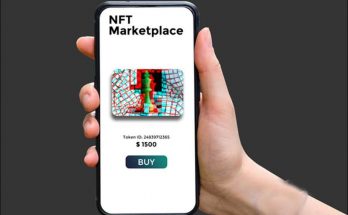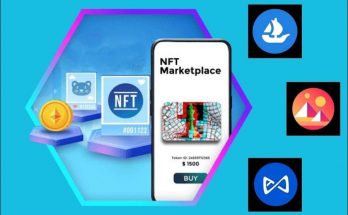Metaverse experience. Mark Zuckerberg, CEO of Facebook, has become the standard-bearer of this virtual universe and is already working on his own metaverse and a name change for his social network, but he is not the only one. Many companies have already started a series of initiatives to promote this technology, such as Microsoft’s HoloLens, PlayStation’s VR helmets, Facebook’s own Oculus, Epic Games’ video games, Alibaba’s Ali Metaverse, a new video game studio based on Tencet’s metaverse, and even the owner of TikTok has already declared his interest in this technology.
As we said above, many companies are striving to be the first to reach the goal of developing the best metaverse as soon as possible, and these are some examples:
Microsoft Mesh
Microsoft surprised in the last edition of Ignite presenting Mesh, its virtual reality bet designed to be used, mainly, in Teams, and that has the momentum of its HoloLens2. The technology giant itself defines it as an opportunity that “enables presence and shared experiences from anywhere, on any device, through mixed reality applications.
They also speak of avatars, even of “holoportation” in the work environment as a way to improve the fluidity of decision-making and the acceleration of problem-solving.
Ali Metaverse of Alibaba
The Chinese giant is the one at the earliest stage, but it has already applied for several metaverse-related trademarks and has declared its intention to run in this technology race. The first trademark would be Ali Metaverse, but Taobao and Dingding Metaverse are also joining. We just have to wait and see how it turns out.
Metaverse of Facebook
Mark Zuckerberg is the one who, for the moment, is investing the most in this virtual universe. So much so that he has changed the name of his iconic social network Facebook to “Meta.” They declare that the metaverse is the next evolution of social connections and promise with Meta a 3D space where you can interact, learn, collaborate and play in many ways never before seen.
They are already developing new technologies to make this vision possible and have become the company that will invest the most in the metaverse. The amount invested in 2020 in R&D reached up to 18.5 billion dollars, and for this one, it will reach up to 30% of Facebook’s revenues. In addition, it will create more than 10,000 jobs in Europe to bring the project to fruition. We leave you with Zuckerberg himself to explain all the details.
Epic Games Metaverse
Another participant in creating its own metaverse is Sony, which has invested $1 billion to make it possible. Epic Games, the creators of Fortnite are in charge of developing it.
For years, this digital universe has been the dream of Tim Sweeney, the co-founder of the video game company, and with this injection of funds, it could be more feasible. However, unlike Zuckerberg’s idea of a monopoly, Sweeny wants the metaverse to be a completely open standard that could even replace the internet.
Zepeto, Zara’s Metaverse
Changing sectors, we find Zara, the textile giant that has chosen Zepeto as the metaverse to launch its first collection of virtual garments. It is a South Korean metaverse for cell phones, with 3D avatars and more than 2 million daily users, which has made it one of the fastest-growing virtual environments in the last year.
This metaverse allows the purchase of digital items through its own currency and provides interaction with millions of users around the world. The predominant audience is young women between 13 and 24 years old, who create avatars based on the real physical characteristics of the users.
The curious thing about this metaverse is that Zara has launched a collection that is also sold in selected stores in the real world and that in the virtual environment has the same prices as in physical stores. But it is not the only company joining the virtual fashion boom, as Dolce & Gabbana, Gucci, Adidas, or Nike are already reinventing their lines in metaverses.
Disney’s metaverse
The entertainment giant has also joined the virtual world and has already approved a patent that will allow the creation of customized interactive attractions for visitors to its theme parks.
This metaverse will employ technology that will track visitors through their cell phones, generating and projecting customized 3D effects on walls, objects or any physical space nearby within the park.
Samsung 837X
After announcing a platform dedicated to NFTs in its TVs, Samsung has launched a space in the Decetraland metaverse. Inspired by its Samsung 837 store in New York, the space is divided into three areas: the Connectivity Theater (intended for the presentation of the brand’s new products), the Sustainability Forest (a forest environment that gives visibility to the company’s sustainable initiatives) and the Personalization Space (it will host a mixed reality party hosted by DJ Gamma Vibes).
The space will have a limited duration and will allow users to participate in challenges and earn badges in NFT format. It’s just the first step, as the company has advanced that they have big plans for the future in this digital universe.
Gucci Garden
The luxury brand launched 2 simultaneous initiatives: Garden Archetypes, an immersive multimedia experience, and Gucci Garden, a unique and interactive virtual exhibition.
As visitors entered the “garden”, avatars became mannequins. They could wander through the different rooms, absorbing elements of the exhibition, retaining fragments of the spaces and ending a journey as unique creations.
Hits: 95





